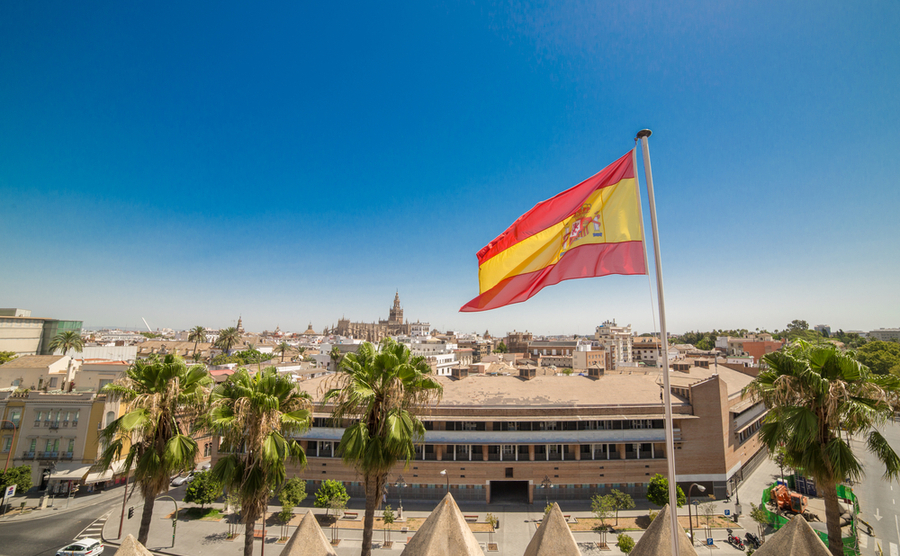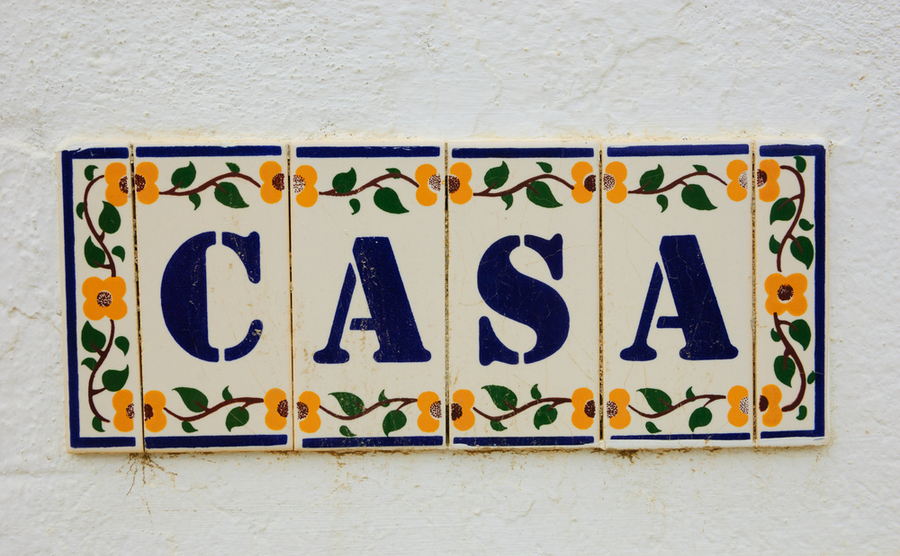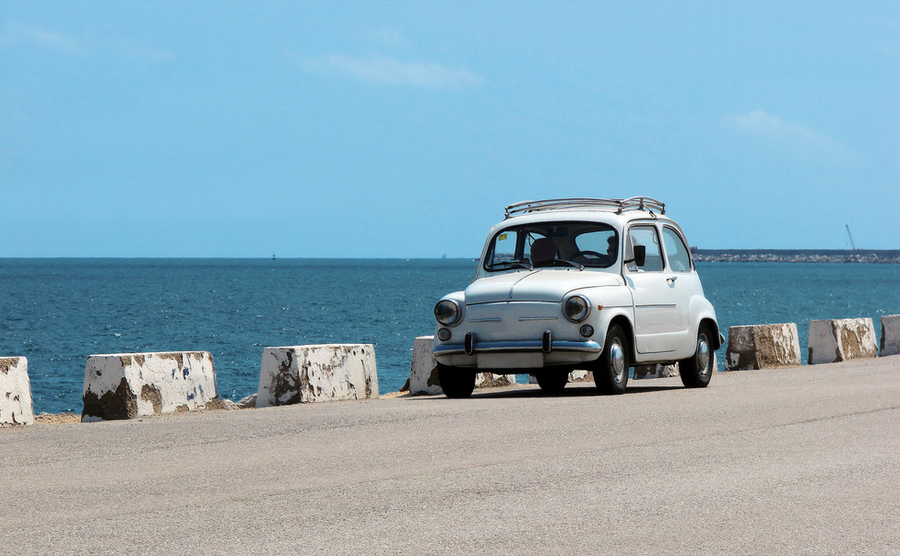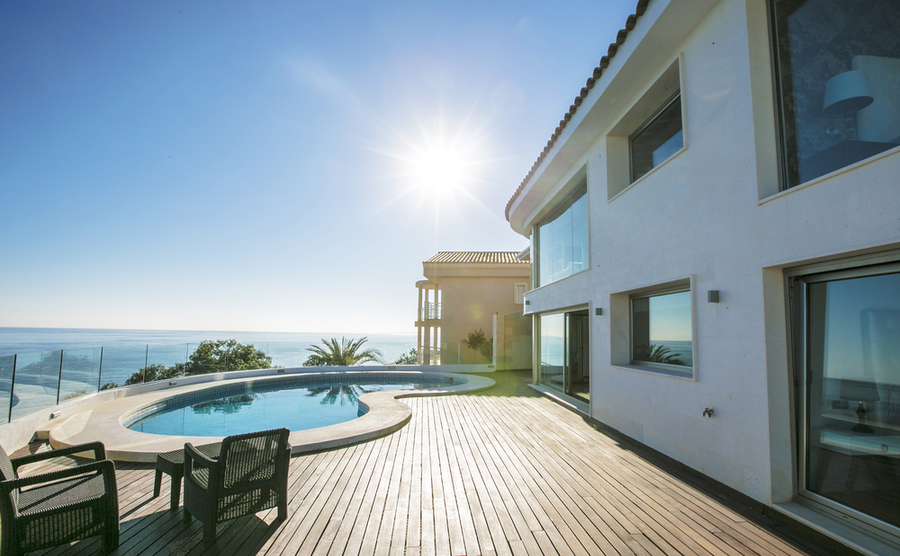Despite some restrictions, thousands of British people have made the move to Spain in the past few weeks – and many more are still in the process – as they beat the Brexit transition door closing. So, what do you need to do as you step off the plane?
It is true that some regions of Spain are under somewhat severe restrictions at the moment, but there is no national lockdown. The Spanish government introduced a “State of Alarm” so that the autonomous regions can introduce measures that they feel essential to curb cases of Covid-19. However, none of this will impact greatly on your move to Spain. Each region is introducing their own rules to combat the virus.
Once landed, here are the essential things to do to keep yourself within the laws and be legally resident before Brexit.
1. Obtain your NIE number
You should obtain your NIE number to purchase the property. Everyone in Spain has this number, not just foreigners. For the Spanish people it is called DNI number, for us it will be NIE (Número de Identidad de Extranjero).
With Brexit looming, can you still obtain this important number? Yes, absolutely. It’s better to get this, if possible, before 31st December 2020 but it will still be possible after the UK leaves Europe, as anyone owning a property will need it. However, after Brexit it will become a little more difficult as UK citizens will no longer be part of the EU and will in effect become “3rd tier residents”, like people from the United States, Australia and Africa, for example.
Don’t be put off though, even if you plan to buy a holiday home. With the help of a gestor or a good friend who speaks Spanish and who knows the system, you can get your NIE number without too much delay. Your NIE number is totally indispensable for your life in Spain generally.
Spain Property Guides can put you in touch with the very best lawyers, estate agents and international payments specialists in Spain, for total peace of mind. Get in touch with your Golden Three here.

Your NIE number is totally indispensable for your life in Spain.
2. Find somewhere to live
Now it’s time to start looking for your property. Because of the problems of Covid-19, it is a buyers’ market at the moment. There is a lot of property on sale and that means you can take your time to search for what you really want. Prices haven’t crashed but they are lower than they were a year ago and that puts the purchaser in a good position. You will, of course, be able to buy after the UK leaves the EU on 31st December 2020. There is likely to be a little more paperwork but there is no restriction on people from outside the EU buying property in Spain.
Instead of buying straight away, you could consider renting a property before you find your dream home. This has numerous advantages, in that you can get to know a particular area well and can hone in on your preferred town or rural area. You can also apply for an NIE while renting, making
the eventual purchase much easier. You will then just need to change the address when you eventually move to your new home. Renting also lets you start living you Spanish life straight away. Use the local shops, markets and bars and restaurants, and get to know the local people as well as others from the UK who have already moved to Spain.
Instead of buying straight away, you could consider renting a property before you find your dream home. This has numerous advantages.
3. Obtain the Padrón
For those of you planning to come to Spain to live on a permanent basis and also for those who are buying with retirement in view, you will need a certificate from the town hall where your property lies to obtain the Padrón. This has nothing to do with residency per se, but it is a vital piece in your armoury to negotiate the Spanish administrative system. Fundamentally, it is a document stating you own a property/are resident in a specific community. It allows the local government to add you to a list of citizens which is presented to the Spanish government and for which subsidies are paid back to your local community and you receive services such as policing, street lighting, education, etc. Don’t forget this important step.

Instead of buying straight away, you could consider renting a property.
4. Get your Spanish residency card
If you are planning to live in Spain for more than 183 days per year, you will need a Spanish residency card. Anyone staying more than 183 days in Spain will automatically, and by law, be deemed a resident of Spain. It might sound daunting but in reality, it is not. You will be paying your taxes in Spain rather than in the UK. This doesn’t necessarily means that you’re paying more than in Britain – the evidence shows otherwise if you are not in a very high bracket financially. There is an agreement between Spain and the UK so that an individual will only pay tax in one country, either in the UK or in Spain.
With the residency card, until now British and other foreign residents have been issued with a piece of green paper or a credit card sized paper to show their residency in Spain. Thanks to the withdrawal agreement between Spain and the UK, new applicants for residency will receive a TIE (Tarjeta de identidad de extranjero) instead of the old green card & it will have your photo on it, plus other info. It will be particularly useful when crossing international borders as it easily identifies you. All UK nationals legally resident in Spain before 31 December 2020 have the right to request this card.
You will need the following paperwork to apply:
● Your NIE and Spanish residency card
● Passport
● S1 if you are a pensioner
● Padrón
● Application Form TA
Read your Buyers’ Guide to Spain for all the information you need about purchasing a property.
5. Open a Spanish bank account
So, what next? You should open a Spanish bank account. There are several good options for people from abroad. Hola Bank is dedicated to British and other foreigners. Banc Sabadell is another that understands the needs of people from countries outside Spain. Santander, familiar to many in the UK is in fact a Spanish bank. ING.es is an online bank like the one in Britain, but their website is in Spanish. as is Revolut Spain. There are a host of other banks such as BBVA, Banco Popular etc. If you can, visit a few to see which will offer you the best deal.

There are several good banks for people from abroad.
6. Organise your currency transfers
Once you have set up your bank account by taking the relevant documents to your chosen bank, you will need to get your currency transfers organised. Traditionally, British high street banks are the worst for currency transfers because they charge a lot and generally offer low rates of exchange. It’s much better to use a currency transfer company, such as Smart Currency Exchange, which is dedicated to helping property buyers and others moving to Europe. They offer good advice, good deals on exchange rates and a personalised service.
Smart Currency Exchange is the specialist in exchanging your pounds into euros. They have two offices in Spain too, in the Costa Blanca and Costa del Sol. Read Smart’s Property Buyer’s Guide to Currency here.
7. Get a Spanish driving licence
If you are planning on becoming a resident, you will need to change your driving licence to a Spanish one. You can only do this once you have had your residency application accepted. You will need to take all the usual documents to your nearest traffic department offices for the exchange: your passport and a copy of it, Padron document, NIE or TIE document and two photos, plus your existing licence. Before any of that however, you will need to go to a medical centre to take a test on a machine, rather like a video game, where you steer a car along a constantly changing road as well as having a quick medical check. That costs around €50 and with the certificate they provide, you are all set to head to Tráfico offices.

You will need to change your driving licence to a Spanish one.
8. Set up your healthcare
Healthcare is probably the number one concern for most people. If you are working in Spain, you will pay into the social security scheme which covers healthcare. Doctors, hospitals and basic medical services are free but prescriptions are not. They are paid according to your income from 10% of the cost up to 50%. People not in full time employment or who have taken early retirement will have to find private medical cover (this is a requirement when seeking residency for both categories). Pensioners are covered by the UK Government and are entitled to free medical care in Spain. For this, you will need to apply for an S1 form from NHS Overseas Healthcare Services. Telephone: +44 (0)191 218 1999.
If you already have private medical insurance, it will probably be with BUPA or AXA PPP but you might find that it’s better to take out cover with BUPA Global or with a Spanish company like Cigna and Sanitas. The latter is owned by BUPA and has an English website: https://www.healthplanspain.com.
Dentists are not covered under the Spanish national health service so you will need to pay for each visit. You can get private cover for dentists too.
SEARCH homes in Spain quickly and easily via our property portal
9. Connect to utilities
You will need to connect to the utilities – gas, electricity and water. Nowadays, you can do this by phone or online but the contract will be in Spanish and so are the companies’ websites. You might find it easier to go in person to an office. Gas and electricity in Spain have been deregulated and there are several options. You can also find suppliers in some supermarkets. Esclat, the Catalan supermarket company is now offering energy contracts under their own name. Water is usually supplied by your town hall but in some cases you might have a choice. Remember, filling a pool is costly!

Water is usually supplied by your town hall but in some cases you might have a choice.
10. Soak up the Spanish lifestyle
There’s a lot to tick off and consider when you make your move to Spain, but don’t forget to stop and smell the roses! Explore your local area, taste the traditional cuisine and chat to the locals. Don’t lose sight of why you moved there in the first place and enjoy it!











